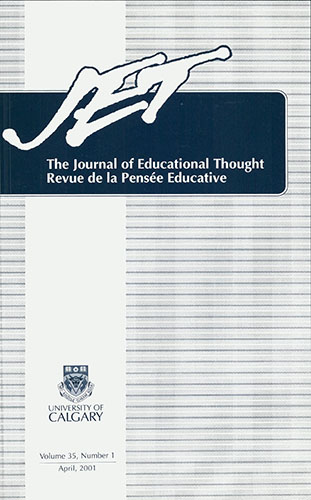A Critical Assessment of Dewey's Attack on Dualism
DOI:
https://doi.org/10.55016/ojs/jet.v35i1.52708Abstract
This paper examines John Dewey's critique of idealism in The Quest for Certainty (1929) and other works and argues that his case was overstated and pedagogically misleading. While dualism has often been regarded primarily as a metaphysical doctrine, its positive value historically has been as a heuristic device, a mode of intellectual scaffolding that reifies thought itself and makes possible instruction in logic, reflective thought, and formal argumentation. A more sympathetic reading of the history looks at classical philosophers and their modern counterparts as workers who contributed to the world rather than hid from it in a realm of idealized perfection. The consequences for education of Dewey's attack on idealism are also examined.
Downloads
Published
Issue
Section
License
The Journal of Educational Thought retains first publication rights for all articles. The Journal grants reproduction rights for noncommercial educational purposes with the provision that full acknowledgement of the work’s source be noted on each copy. The Journal will redirect to the appropriate authors any inquiries for further commercial publication of individual articles. All authors wishing to publish in JET will be asked to fill in and sign a Consent to Publish and Transfer of Copyright agreement.
Authors must affirm that any submission to JET has not been and will not be published or submitted elsewhere while under considration by JET.

